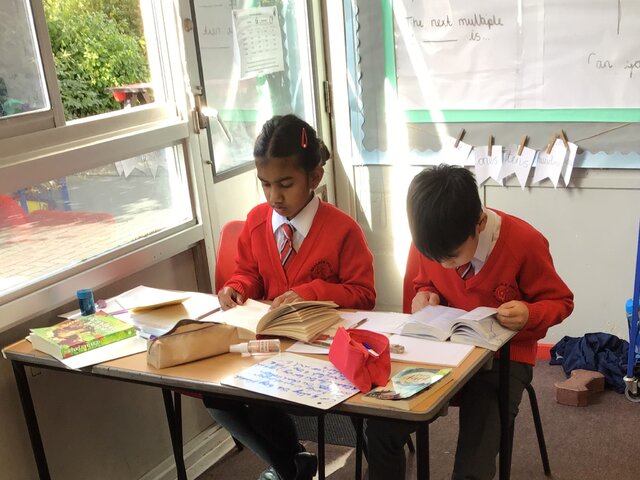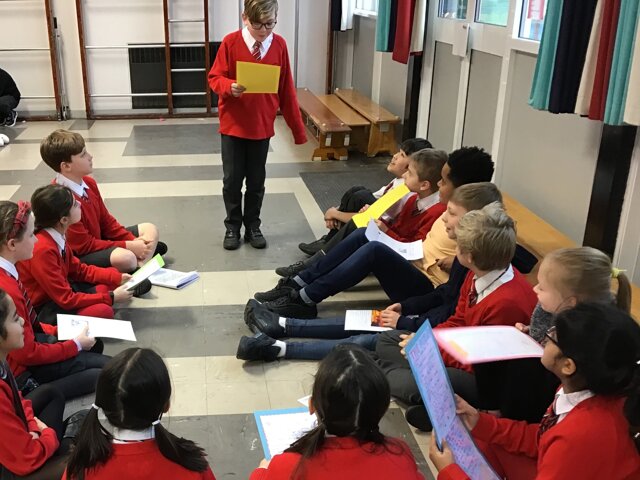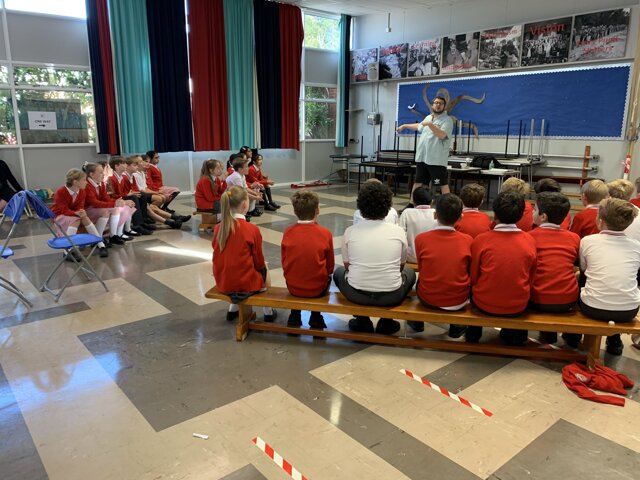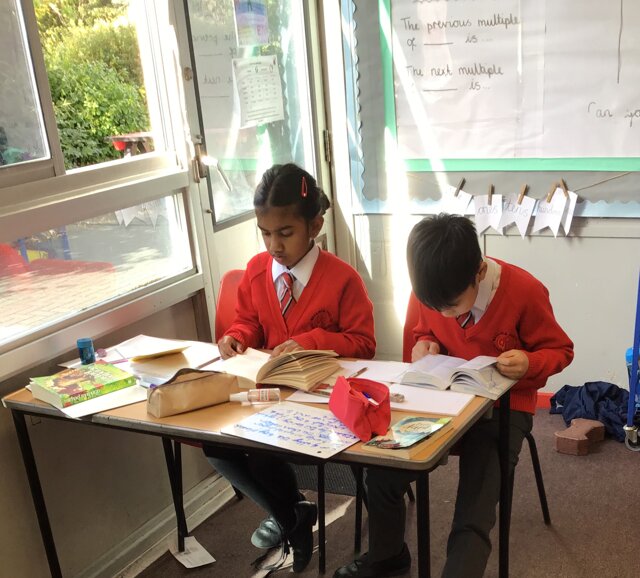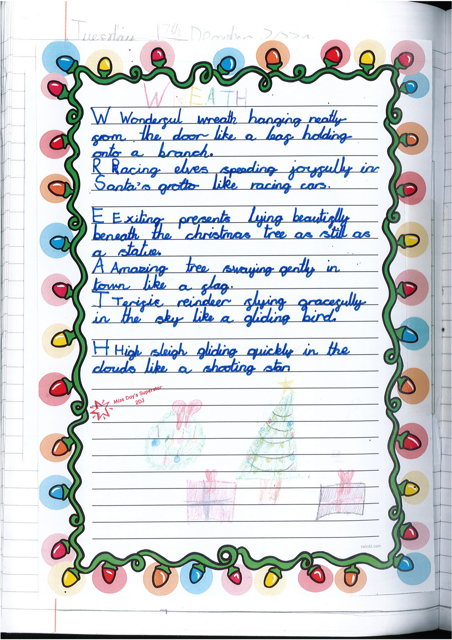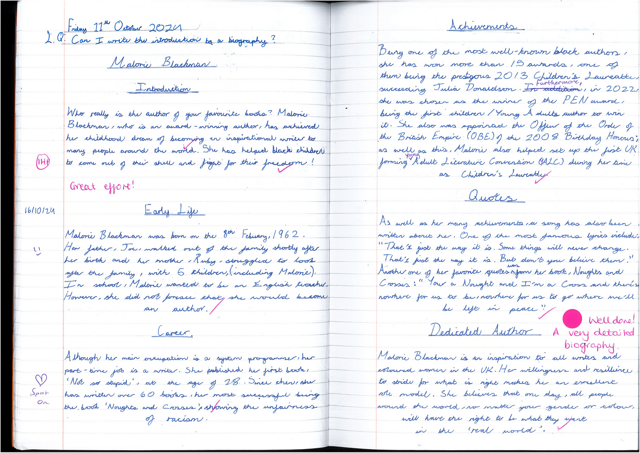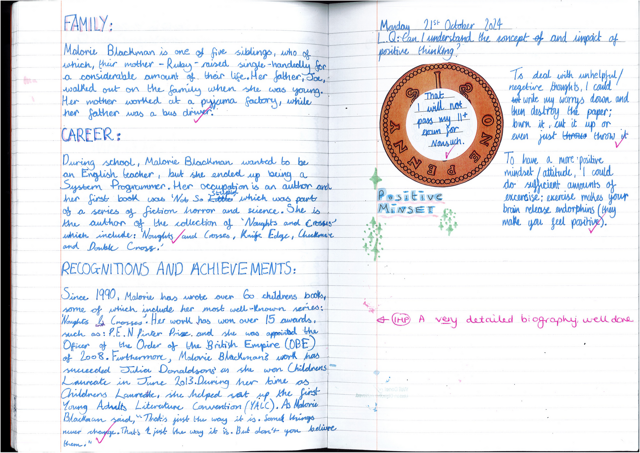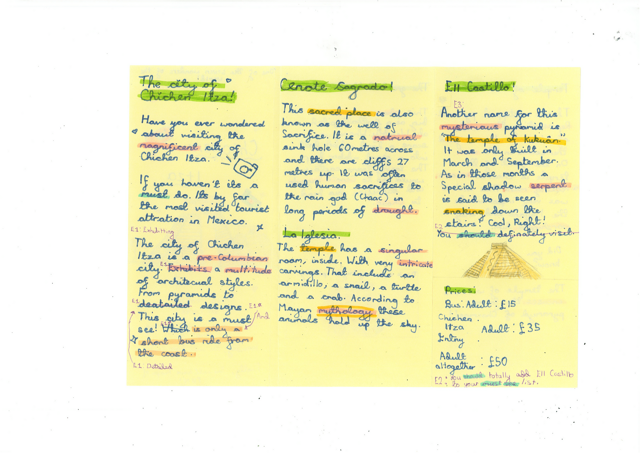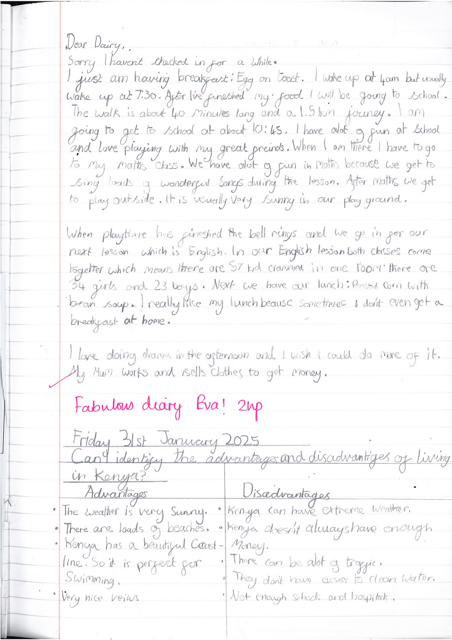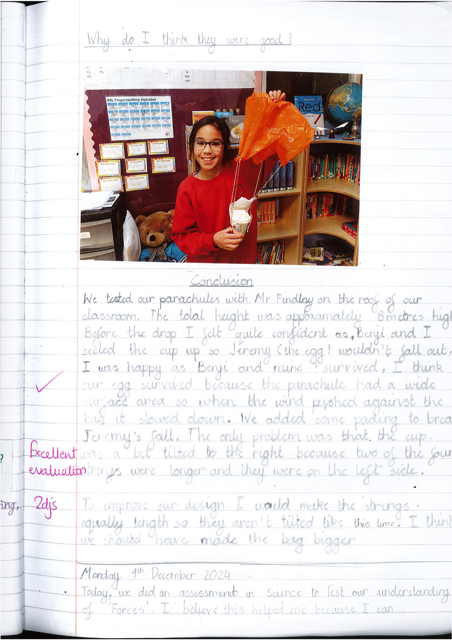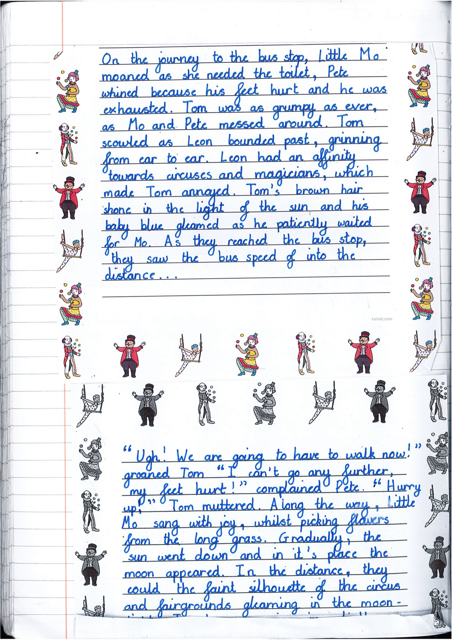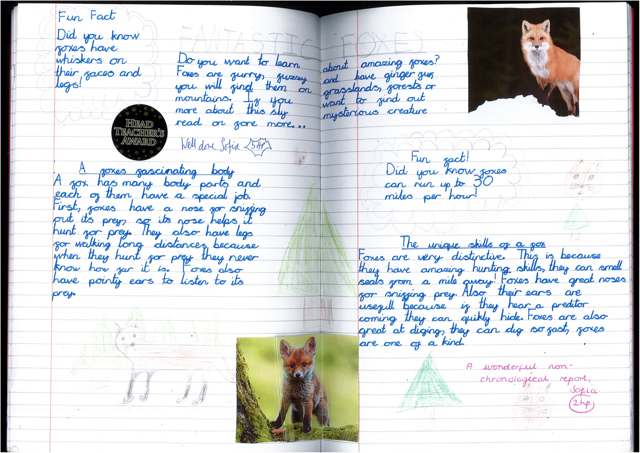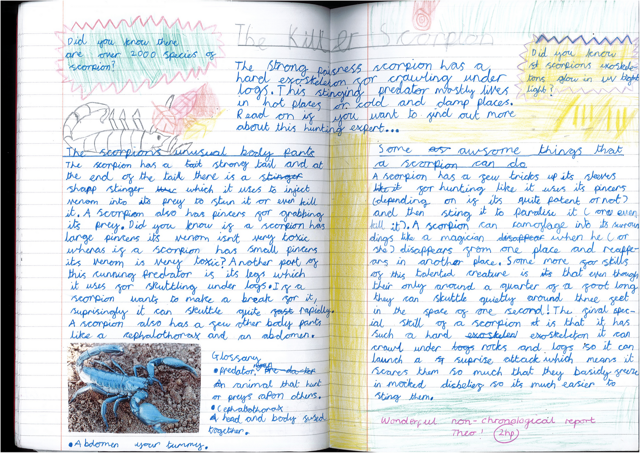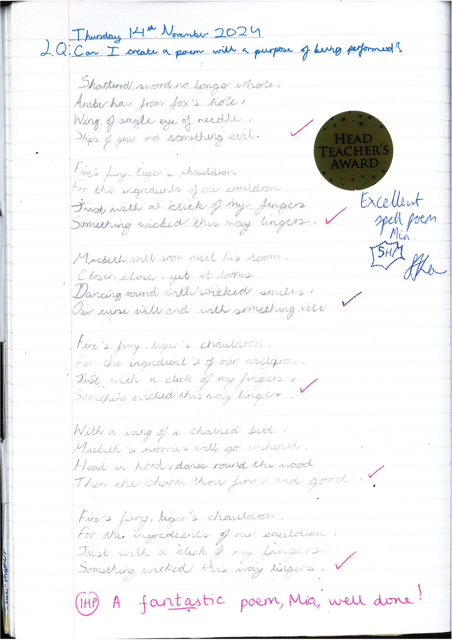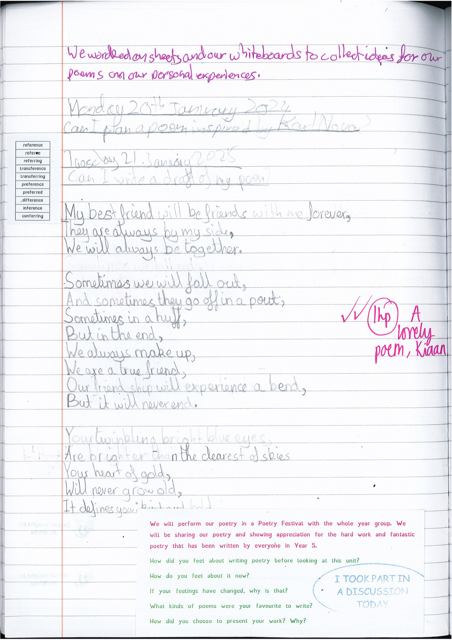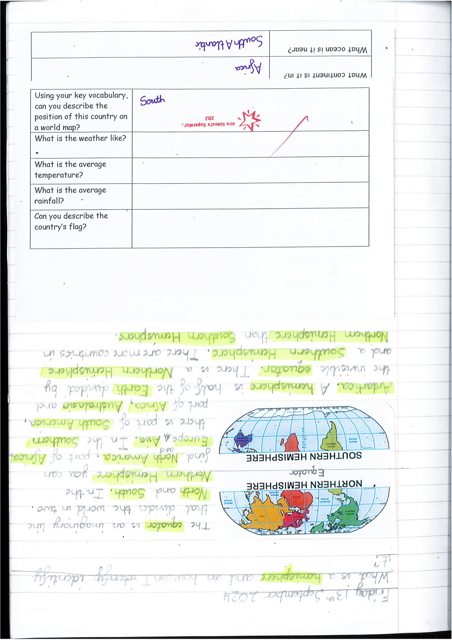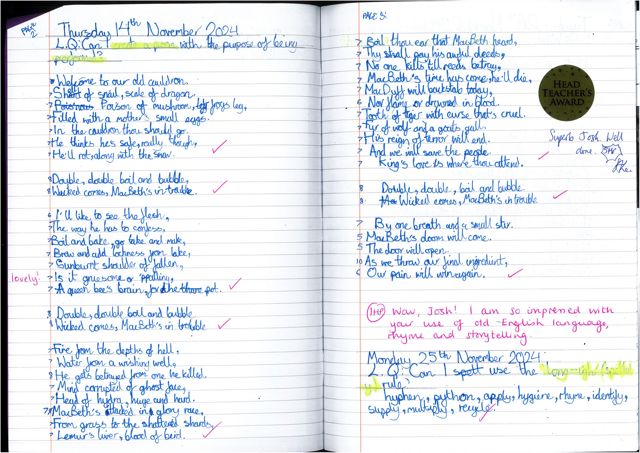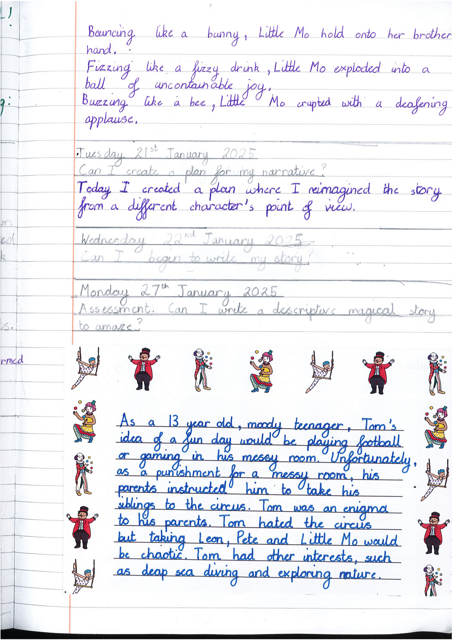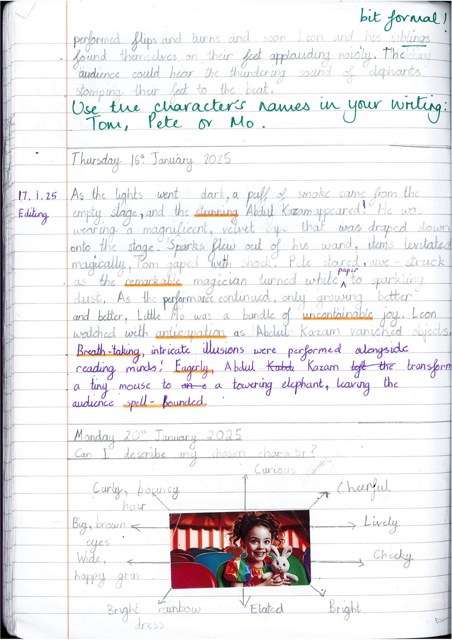English at Wallace Fields Junior School
Intent
At Wallace Fields Junior school we believe in a creative and progressive English curriculum that will develop children’s ability to listen, speak, read and write for a range of purposes with confidence and enjoyment. Our teachers choose and place high quality literature at the heart of learning reading and writing which inspires, challenges and motivates pupils to learn; in turn, this establishes enjoyment and engagement in English. Writing opportunities across the curriculum allow all pupils to express themselves creatively and imaginatively. Through discussion of a variety of texts and development of comprehension skills, they become critical readers of stories, poetry, non-fiction, media.
Our planning follows the National Curriculum for English 2014 to enable all children to:
- be confident at speaking and listening, expressing their opinion with clarity, making formal & informal presentations and taking part in discussion
- use discussion to learn by elaborating and explaining their ideas and questioning those of others across all subjects
- become confident, independent readers with a developed habit of reading for pleasure and for information through exposure to a wide range of quality texts across the curriculum
- be ambitious in their choice of vocabulary and confident with tier 2 words
- enable children to write with accuracy and meaning, adapting language and style for a range of audiences and purposes
- spell independently using a variety of strategies to edit their own work independently
These aims are embedded across our English lessons and all other areas of the curriculum. They develop their knowledge through a clear pathway of progression. Accurate assessment ensures support is targeted. Opportunities for children to showcase their skills are provided and outcomes are evidenced across the curriculum with high quality written work in all books and in displays.
Implementation
At Wallace Fields Junior School we use a variety of teaching and learning styles in English lessons. Our principal aim is to develop children’s knowledge, skills, and understanding in English. We do this through daily English lessons and additional spelling and guided comprehension lessons.
Reading for pleasure is evidenced throughout the school. Within each class there is a well-stocked bookshelf and displays to encourage the reading of different books. Teachers make opportunities for ‘book’ talk where children and teachers can recommend books to each other. Some upper school children become reading ambassadors who listen to, and encourage our younger readers. Our extensive library is kept stocked with new titles by our school librarian. Each class has a lesson in the library once a fortnight and we also have a library club and Book Club to encourage reading for pleasure. Reading comprehension skills are taught within a whole class lesson once a week using quality texts and in English lessons. Intervention is provided for those who need additional support. Reading is also celebrated annually with World Book Day and a themed book week with author visits and organised book sales. Reading diaries are used to monitor reading.
When planning English lessons, teachers often make links to other areas of the curriculum or to current events to provide a context for learning and writing; quality texts are also used as a model to share. Teaching units focus on fiction, non-fiction or poetry, in line with the 2014 National Curriculum with comprehension & grammar embedded into lessons. Lesson sequences build progressively with teachers seen as writers modelling the process; this culminates in an extended piece of writing which is then edited and improved.
Children may use Chrome books or computers in English lessons and also use multimedia to study how words and images are combined to convey meaning. Children are encouraged to use and apply their learning of the English language in other areas of the curriculum. Writing is celebrated through awards and displays in all areas of the school.
Assessment for Learning is embedded into the English curriculum through use of success checkers which enable children, with support from the teachers, to review their achievements in their work and identify areas to develop. This enables a continuous, individualised approach to improving their work. Support is targeted through quality additional intervention and support within the lesson from the teacher or teaching assistants.
Quality and ambitious vocabulary is explicitly taught and encouraged through our whole school use of the Word Collector and displays.
Spelling is taught through a weekly spelling lesson and embedded into English lessons. The school uses Spelling Shed to support continuous practice at school and home. Children are encouraged to be independent by using strategies taught, dictionaries and spellcheckers. Those who are still learning decoding have intervention through phonics and reading decodable books.
Impact
Due to the creativity of our English curriculum and our celebration of reading for pleasure, we have a community of enthusiastic readers and writers who love to talk about their work and share ideas within the class. Outcomes of work in all curriculum books evidences the high quality of work and the impact of cross curricular writing opportunities which enable children to write across a range of forms and adapt their writing successfully, considering the purpose.
By the end of KS2, children are competent readers who can recommend and take part in discussions about books; can independently research all curriculum subjects, communicating their knowledge to a wider audience in a variety of forms and use specific and high-level vocabulary. They are able to reflect on their writing then edit and improve their work.
Attainment at the end of KS2 is consistently above the National average and places Wallace fields Junior school as one of the top achieving schools in Surrey.
National Curriculum
To find out more about the national curriculum for English in Key Stage 2 that the school is following click here.
Related News
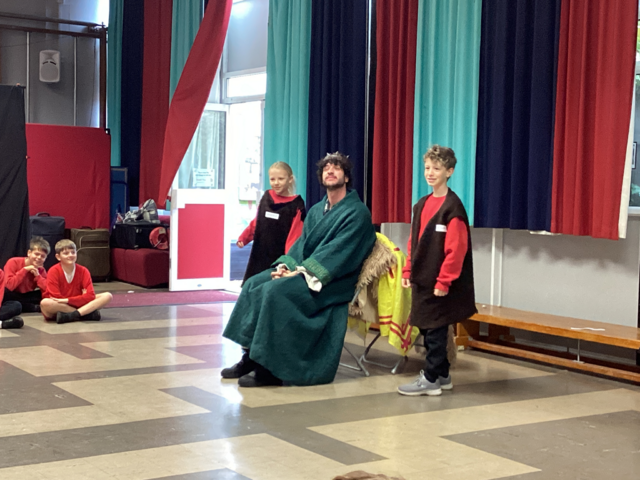
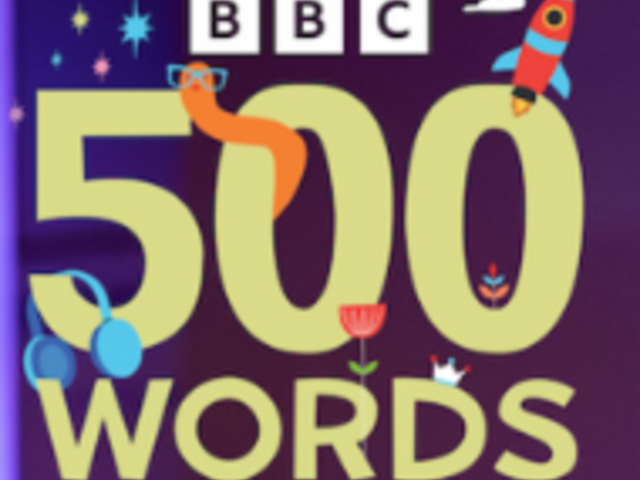
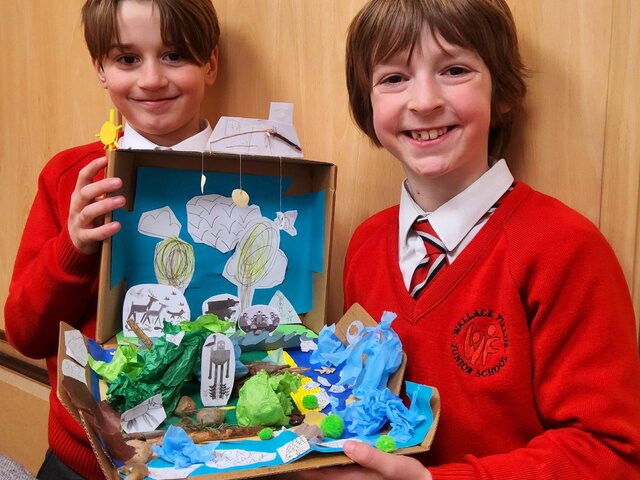
Related Events

Scholastic Book Fair - School Hall


